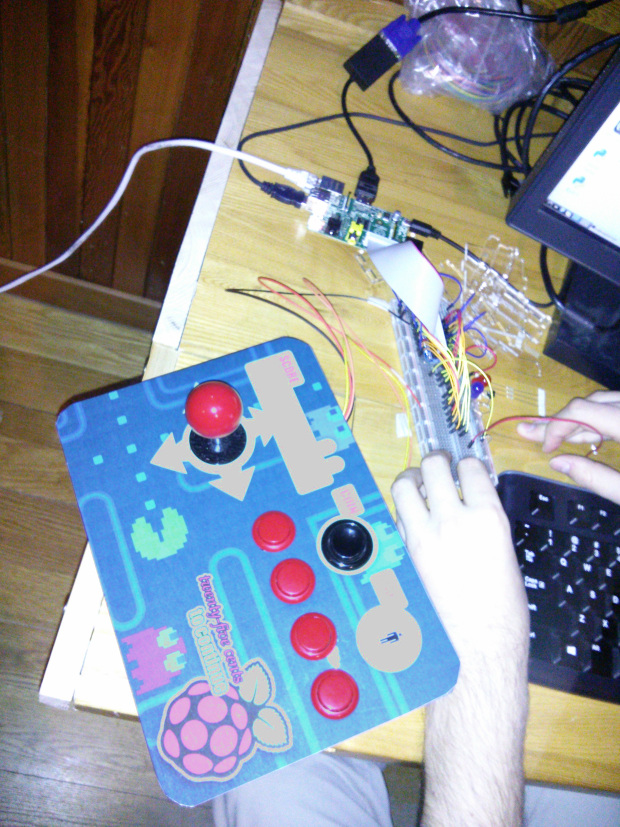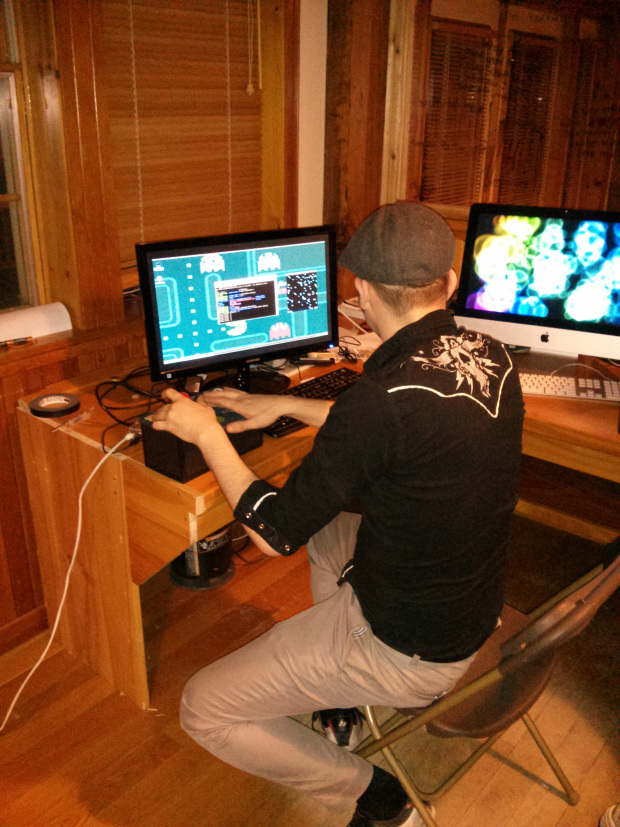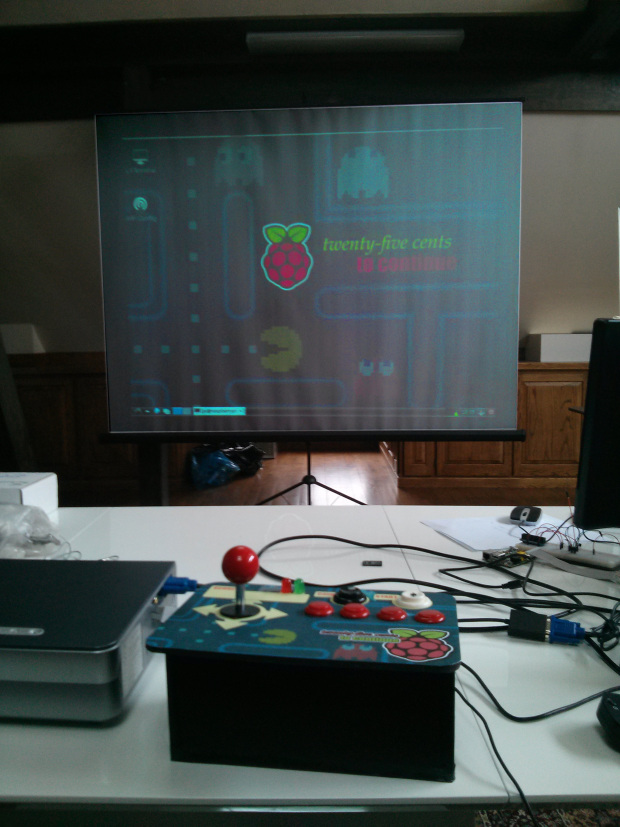Hack Labs Kingston Raspberry Pi Weekend
Last week a friend of mine dropped by my lab with a poster for an event he thought I might be interested in - I love the fact that my friends and colleagues now associate me with all things techy and geeky etc. Anyways he had a poster for a weekend hacking session on Raspberry Pi’s (RPi’s). It just so happened that I actually had the weekend free so bam I was there.
I had a great weekend at Hack Labs Kingston, now before I get into the details of our project I want to talk just a bit about the atmosphere. It was amazing, first the location, deemed the boathouse, a strange older wooden building that juts out onto the lake that during the week is home to I believe 5 small science and tech companies. Everywhere you looked out the windows all you could see was just ice, tt was like being at the cottage for a weekend except we were right downtown. Inside there was lots of large glass windows and dividers which most companies wrote on with window markers for the whole John Nash vibe which I also like. All in all a very cool place to spend the weekend hacking away. The next big point is the people - so many cool people! I definitely need to get more involved with the hacker/maker culture, these are my peoples! I think what was great about the people was that they were as passionate as I am about this kind of stuff. You know when you really need to talk about something you find cool but your audience just isn’t as into it and it kind of leaves you a little unsatisfied - well none of that at Hack Labs! (at least for me lol)
I feel like I should put a link to the Hack Labs Facebook page so here it is:
*edit* Hack Labs Kingston is now the Kingston Maker Space *
https://www.facebook.com/KingstonMakerSpaceInitiative
That was a lot of text so far so bam how about some pics of the final product resulting from the weekend:



We made a PiArcade!
I was on a team of 5 including another programmer, 2 electrical engineers and a graphic designer (which explains the nice graphics!) that put this together over the weekend. We wired the retro arcade buttons directly into the GPIO headers on the RPI board. Then we wrote a program which read the GPIO and converted it to keyboard input for playing the game. To polish it all off we wrote some nice bash scripts so we could start and quit the game using the arcade buttons.
We used GitHub for our project so all the source is available. This repo probably has the most coherent commit messages of all time… hahaha. github.com/pickle27/25c-to-continue Anyways if you’re curious I’m sure you can easily reproduce our project although you’ll need a bit of Linux know how because we had some sim links going on and it required some kernel modules loaded.
It was really fun to work with a team that was so enthusiastic and that had such a wide variety of skills. On Sunday everyone presented their project, we ran our PiArcade with a pygame remake of Millipede (with some modifications) for one of the sponsors who had mentioned it was his favourite classic arcade game. Our team, named “Twenty-Five cents to Continue” took home the grand prize for best weekend project, meaning I’m the proud new owner of my very own Raspberry Pi!
I did learn a few things about the RPi over the weekend, the main thing is that it is not, I repeat it is not an Arduino nor does it replace the Arduino. The Arduino is exceptionally good at interacting with hardware and while the RPi can interact via the GPIO it’s not its strength. This may change as improvements are made to the software but that’s not the point, the RPi has a lot of strengths that the Arduino doesn’t have like video out, support for usb devices, internet access, ssh the list goes on. My take away is use the RPi for what it is - a tiny computer and leave the Arduino for dealing with the hardware. The coolest projects in the future are going to use both RPi’s and Arduinos so learn to use them each effectively!
Here’s a video of our creation!
I edited this using Kdenlive and I just have to say wow what an excellent program!